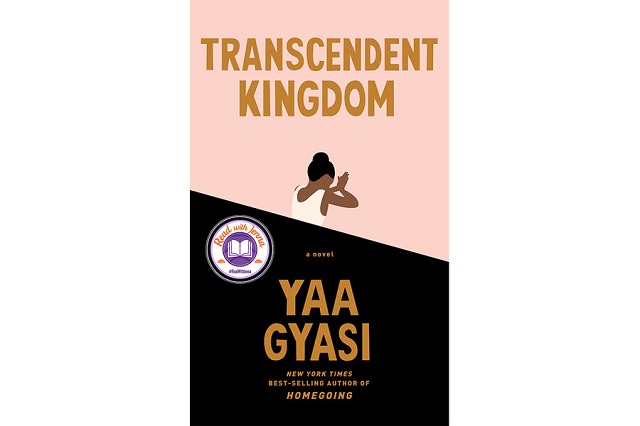
BOOK REVIEW – YAA GYASI | DANIELLA KHANANI | ‘What is the point of all of this?’ is a question that separates humans from other animals. Our curiosity around the issue has sparked everything from science to literature to philosophy to religion. When the answer to the question is ‘Because God deemed it so.” We might feel comforted. But what if the answer to this question is ‘I don’t know’ or worse still ‘Nothing’? Excerpt from Transcendent Kingdom – Yaa Gyasi
Award-winning Ghanaian-American writer Yaa Gyasi’s novel `Transcendent Kingdom’ is set in Alabama state, USA, where Gifty, her brother Nana, and their mother learning to assimilate into a foreign culture in a foreign land, as people of color. The ‘Chinchin man’; a nickname Gifty gives to her father, has abandoned his family after failed attempts at ‘living the American dream’.
Before relocating to America, the protagonist’s devotedly religious mother, had struggled and prayed over barrenness for years before giving birth to a child who they name Nana, the miracle child. He becomes the centre of the mother’s world, so much so that even after Gifty was born, Nana remained the golden child.
Being the least favourite child, Gifty loved living in the shadow of her brother because she could get away with almost anything and only occasionally being reprimanded. As with most people, this plays a major role in Gifty’s adult life choices and reactions to different encounters.
In a diary, Gifty writes about her mother working long hours to provide for Nana’s endless football and in due course, basketball needs. Including when, like most basketballers or sportspersons, Nana sustains an injury in one of his games and is prescribed OxyContin to relieve the pain. Nana eventually gets hooked and addicted to the Oxy which results into a whirlwind of back-and-forth encounters with rehab.
In her diary, Gifty writes all she sees, thinks, and feels about her brother every time he is high on the drug and his escapades that led their mother to worry uncontrollably. After a year in rehab, Nana returns home and promises his mother and sister that he was done with the drugs, until he wasn’t. Finally Nana dies. Gifty reflects on her brother’s addiction and the lack of restraint, by asking herself deep questions.
The events leading up to the death of Nana reveal Gifty’s exploration of religion through letters written to God in her journal. Her brother’s death at a young age also plunges Gifty deeper into the world of science. Through her lab experiments with mice, Gifty seeks to understand how the brain responds to restrain and reward even when the reward has adverse effects. She particularly observes how mice continuously pull a lever to gain a reward despite electric shocks that come with the pulling of the lever.
She writes: ‘Being saved, I was taught when I was a child, was a way of saying Sinner that I am, Sinner that I will ever be, I relinquish control of my life to He who knows more than I, He who knows everything. It is not a magical moment of becoming sinless, blameless, but rather it’s a way of saying, Walk with me. When I watched the limping mouse refuse the lever, I was reminded yet again, of what it means to be reborn, made new, saved, which is just another way of saying, of needing those outstretched arms of your fellows and the grace of God. That saving grace, amazing grace, is a hand, a touch, a fibre-optic implant, and a lever and a refusal. And how sweet, how sweet it is.”
As a reader of the `Transcendent Kingdom’, be ready to learn and gain insights about addiction, immigration of Africans to America, and religion.
Gifty’s graduate and postgraduate research on mice leads her to explore the addictions of her brother and the ultimate withdrawal of the mother to severe anhedonia, the inability to feel pleasure in normally pleasurable activities. Some readers might argue that she got into science because of the loss of her brother and the depression of her mother while others might argue that her curiosity led her there.
Gyasi’s exploration of anhedonia immerses the reader into insights and information on the condition and its impact on the loved ones of the victim. Gifty in particular expresses how her mother’s withdrawal made her comfortable with the arch of her mother’s back to her since the age of nine when Nana died. Gifty references the ‘Still Face experiment’ by Edward Tronick which explores the adverse effects of a mother’s non-responsiveness on a baby of 3-4 months.
Children in their formative ages do sense the withdrawal of a parent and they set their guards up through different attachment, including an anxious-avoidant style that constantly builds walls against relationships of any sort due to the fear of abandonment. Gifty narrates her failure at maintaining long-term relationships and its impact on her research and ultimately love life.
***
Yaa Gyasi simplifies technical scientific concepts and weaves in how religion leads to transcendence; the achievement of unusual excellence. This is a top recommendation in case you’d like to delve into African literature fiction.
WRITTEN BY DANIELLA KHANANI – The Anafricanbookshelf Book Club
 The Independent Uganda: You get the Truth we Pay the Price
The Independent Uganda: You get the Truth we Pay the Price





